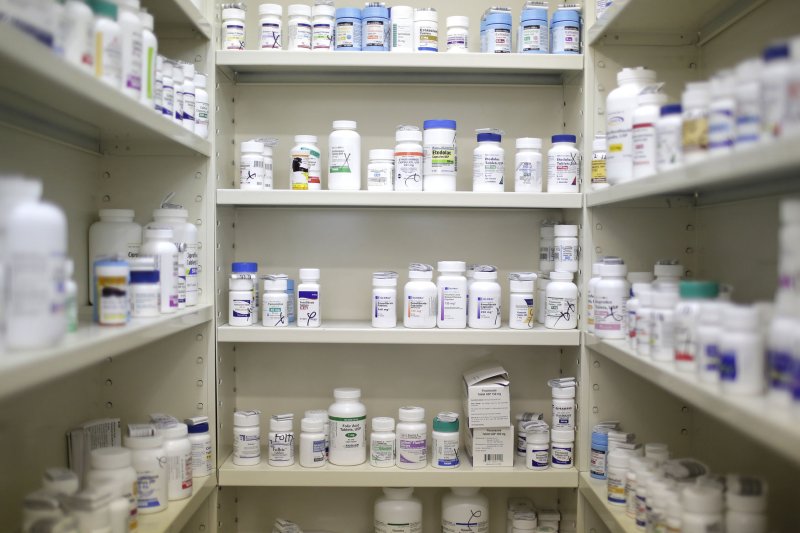A new study by the University of Pennsylvania shows that even small quantities of opioids prescribed for minor injuries can increase the risk of long-term use or abuse. Photo by John Angelillo/UPI |
License Photo
May 17 (UPI) -- Research from the University of Pennsylvania shows that over-prescribing of even small amounts of opioids for minor injuries can increase risk of long-term use.
Researchers point to the significant variation in opioid prescribing habits by doctors for minor injuries such as sprained ankles as a major contributor to the current opioid epidemic in the United States.
The new study by the Perelman School of Medicine at the University of Pennsylvania showed that patients who receive 30 or more opioid pills compared to less than 15 pills were twice as likely to fill an additional opioid prescription within three to six months.
"The substantial variation in prescribing patterns of such extremely addictive medications for minor injuries results in many thousands of pills entering the community, and places patients at an increased risk of continued use and potentially addiction," Dr. M. Kit Delgado, an assistant professor of Emergency Medicine and Epidemiology at Penn, said in a press release. "It's vital that we identify and understand the root causes of this growing issue."
Using private insurance claims data from more than 53,000 patients visiting U.S. emergency rooms for an ankle sprain between 2011 and 2012, researchers found 7 percent of patients received a prescription for an opioid pain medication.
Researchers found there was significant variation across states, with only 1.6 percent of patients receiving prescriptions for opioids in Delaware compared to 16 percent in Mississippi.
"Looking only at the cases analyzed in this study, if all prescriptions written for more than 20 pills were instead written for only 20, there would have been 37,721 fewer opioid pills entering the community," Delgado said. "If extrapolated more broadly to the treatment of other minor injuries, this likely translates to millions of highly addictive and unnecessary prescribed pain medications filtering into the community. The study illustrates the potential benefit of laws to limiting new opioid prescriptions for acute pain to no more than five-day supply as was recently passed in New Jersey."
The study will be presented at the Society for Academic Emergency Medicine annual meeting..















